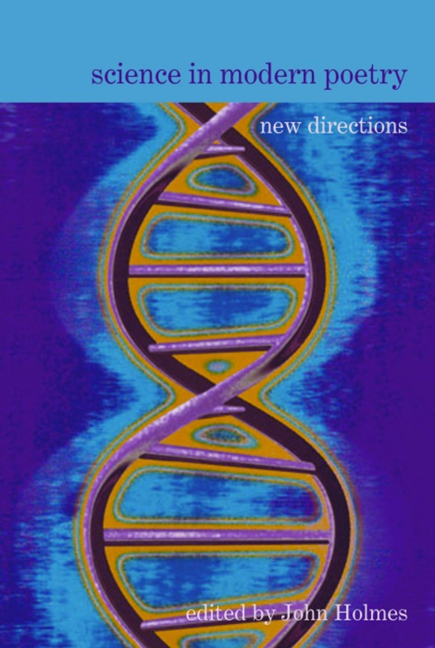Afterword
Summary
D. H. Lawrence has a disarming short poem in his late collection Pansies, titled ‘Relativity’. It begins:
I like relativity and quantum theories
because I don't understand them (ll. 1–2)
Nothing in the contemporary realm of the modern sciences is any more esoteric than these topics were in their own time of emergence, already most of a century ago. Confronting such matters, most poets and readers of poetry merge into the mass of humanity without specialised scientific training. The difference may simply be that poets and readers of poetry are more likely than others even to bring the matter to mind, to engage in some fashion with, perhaps to meditate upon, the cultural effects of their being among those who find such sciences compelling despite being incomprehensible in their mathematical details. Perhaps they are also more likely than others to find something in that situation fruitful rather than merely frustrating. Lawrence's poem continues:
and they make me feel as if space shifted about like a swan that can't settle,
refusing to sit still and be measured;
and as if the atom were an impulsive thing
always changing its mind. (ll. 3–6)
The speaker's implication would be that, while such deep physical matters may not be understandable per se, nonetheless, for the lay observer of science they are still graspable in their implications. With the assistance of popular expositions one can gather the gist of what modern physics suggests about the complementarity rather than mutual exclusion of different locations or states of being; one can still appreciate the challenge that modern physics was then posing to classical verities regarding absolute space and time. In this poem, D. H. Lawrence of all people is actually getting and relaying the real scientific message, the one unreceived by dogmatists of whatever camp. The world unfolds itself in our direction but still eludes any fixed comprehension. It adapts itself from moment to moment to the measuring instruments we apply to it, only to say something not entirely the same on another day to another would-be suitor.
- Type
- Chapter
- Information
- Science in Modern PoetryNew Directions, pp. 210 - 214Publisher: Liverpool University PressPrint publication year: 2012



